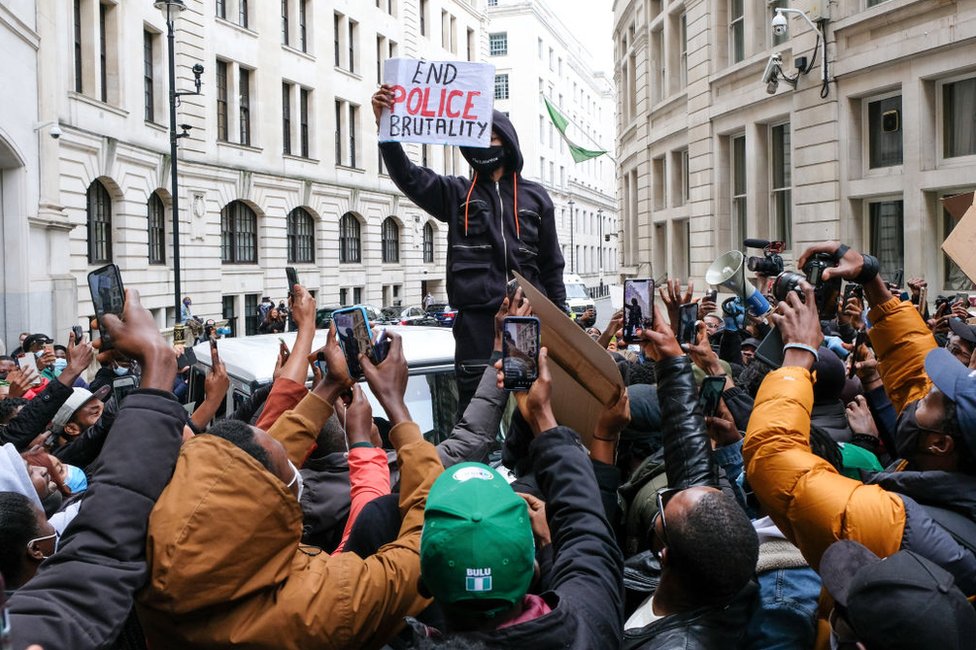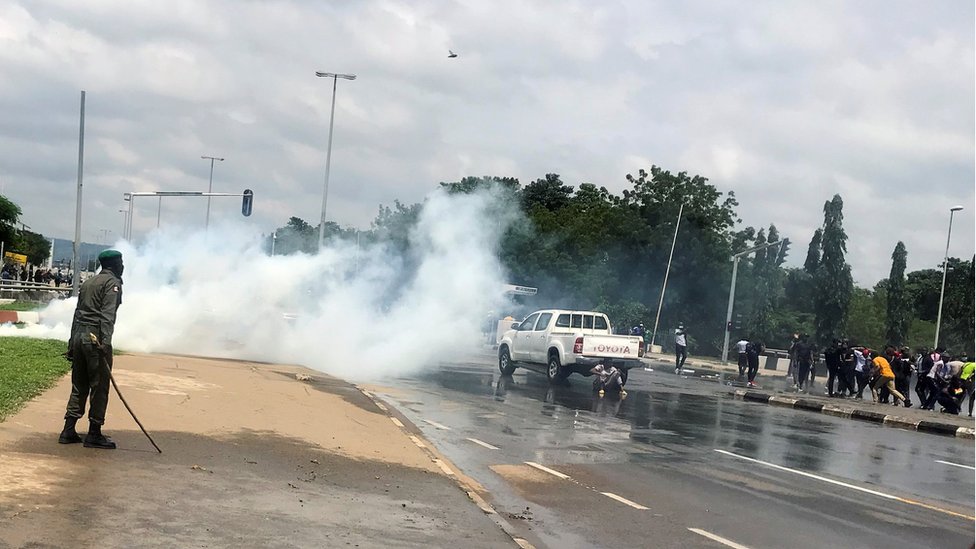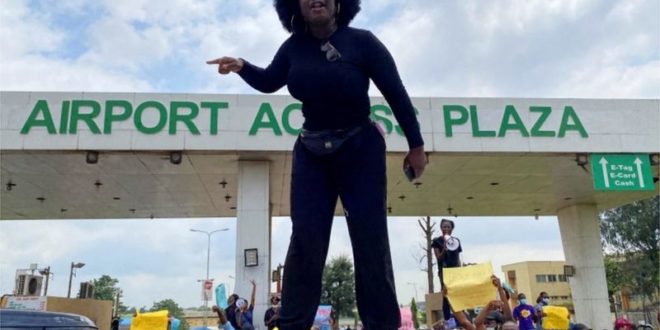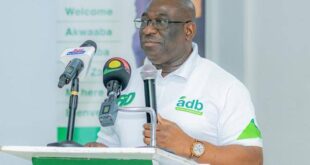A police officer and a civilian have been killed in the Nigerian city of Lagos as protests continue against police brutality for a sixth day.
There are reports that police used live ammunition on the protesters in the country’s largest city.
This comes a day after a notorious police unit accused of unlawful arrests and murder was officially disbanded.
Demonstrators have long called for the Special Anti-Robbery Squad (Sars) to be broken up.
But they remain unhappy following Sunday’s announcement that officers are being redeployed to other units rather than being disciplined.
Eyewitnesses say there were multiple casualties among protesters after police opened fire on them in the Surulere area of Lagos on Monday, the BBC’s Ishaq Khalid reports from the capital, Abuja.
Some of the demonstrators reportedly threw stones at the police. The police say one officer was killed and two others were critically injured by what they called ”armed protesters”.
Meanwhile, Lagos police and protesters blame each other for the death of a 55-year-old man.
An aide to President Muhammadu Buhari has condemned the use of live bullets on demonstrators by the police. There are reports that armed trucks have been deployed to Lagos airport to break up protests blocking access to the airport.
Earlier, the president promised “extensive” police reforms and said Sars officers responsible for human rights violations would be brought to justice.
But the latest alleged use of live bullets by the police on protesters could further anger campaigners and lend more credence to their grievances, our correspondent says.
In Monday’s video address, President Buhari said disbanding Sars was “only the first step” in a range of reforms, but added that police officers were hard-working, and the reputation of the force should not be tarnished by a “few bad eggs”.

In a statement, Nigeria’s police chief Mohammed Adamu said allegations of abuse would be investigated by a committee including civil society members.
Yet many are concerned at suspected wrongdoers continuing to serve in the force, and it is unclear whether any officers will be prosecuted for past abuses.
 IMAGE COPYRIGHTBARCROFT MEDIA
IMAGE COPYRIGHTBARCROFT MEDIASceptics also point to the fact this is the fourth time in as many years that promises have been made to disband or reform Sars.
After Sunday’s announcement that the police unit would be disbanded, there were reports of officers continuing to use tear gas, water cannon and live rounds against protesters in the capital, Abuja, and the south-western state of Oyo, fuelling concerns that people in Sars had not been removed from duty.
It was not until musician Davido joined protests in Abuja that the police stopped arresting demonstrators.

There are also fears that if thousands of Sars officers were dismissed at once, they could pose a security threat.
Activists say the abuses carried out during the protests – including beatings, intimidation and the disproportionate use of force against demonstrators – were all carried out by policemen who did not belong to Sars.
They say a total overhaul of policing in Nigeria is needed.
Over the weekend, protests against Sars spread to Europe and Canada after reports of unlawful arrests, torture and shootings.

What do the protesters want?
 IMAGE COPYRIGHTREUTERS
IMAGE COPYRIGHTREUTERS#EndSARS campaigners have circulated a list of five key demands to bring about reform. These are:
- The immediate release of all arrested protesters
- Justice for those killed by police brutality and compensation for their families
- An independent body to investigate and prosecute misconduct
- Independent psychological assessments and new training for dismissed Sars officers who want redeployment
- A pay rise for police so they are “adequately compensated for protecting lives and property of citizens”

How did Sars operate?
The latest round of protests were prompted by footage of officers pulling two men out of a hotel in Lagos into the street and shooting one of them.
The footage, leaked to the media, provoked outrage and led many to share stories of brutality attributed to the unit, which has developed notoriety for unduly profiling young people, the BBC’s Nduka Orjinmo in Abuja says.
Those considered “flashy” often attract the Sars officers’ attention and very few walk away without having to hand over money, while others are arrested or jailed on trumped-up charges and some have been killed, our correspondent adds.
 IMAGE COPYRIGHTREUTERS
IMAGE COPYRIGHTREUTERSEarlier this year, rights group Amnesty said it had documented at least 82 cases of torture, ill treatment and extra-judicial execution between January 2017 and May this year.
The victims were mainly men aged between 18 and 35 from poor backgrounds and vulnerable groups. Many of those tortured were beaten with sticks and machetes and denied medical attention, the group said.
The “systemic use of torture… points to an absolute disregard for international human rights laws and standards”, Amnesty said.
Why didn’t reform work?
The #EndSARS hashtag was first thought to have been used in 2018, but it emerged once again a week ago.
There have been earlier attempts to reform the notorious squad:
- December 2017: Outcry prompts Nigeria’s then-police chief, Ibrahim Idris, to order an immediate re-organisation of the anti-robbery unit in the aftermath of a viral video showing a young man allegedly killed by police
- August 2018: Acting President Yemi Osinbajo orders an overhaul of Sars, wanting a new unit whose officers would wear proper identification while on duty. He also asks the National Human Rights Commission of Nigeria to create a special panel to investigate previous wrongdoing by Sars
- January 2019: Newly appointed Inspector General of Police Mohammed Adamu announces a comprehensive reform of Sars and temporarily decentralises the unit. Rights group Amnesty says the reforms do not go far enough for citizens to trust the police
- February 2020: Police boss Mohammed Adamu gives instructions to disband Sars’ satellite offices
Yet campaigners say none of these has made much difference to the force’s behaviour.
BBC.COM
 Home Of Ghana News Ghana News, Entertainment And More
Home Of Ghana News Ghana News, Entertainment And More





